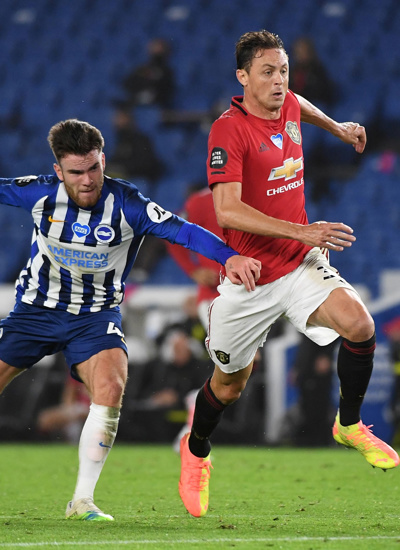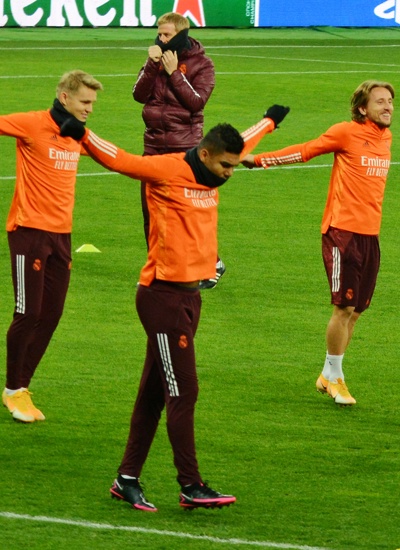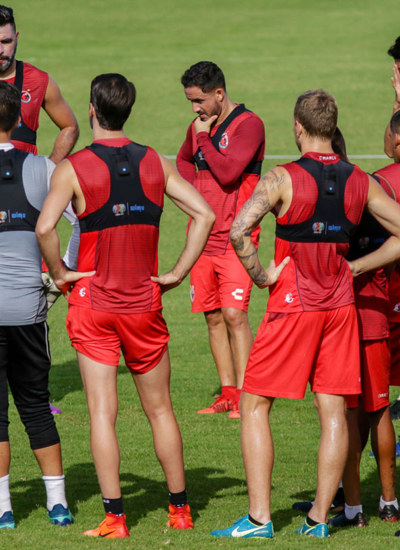
Une partie de cette page n'est pas traduite en français.
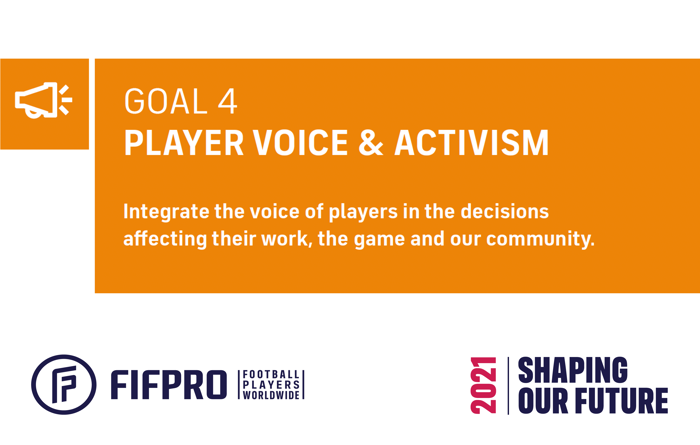
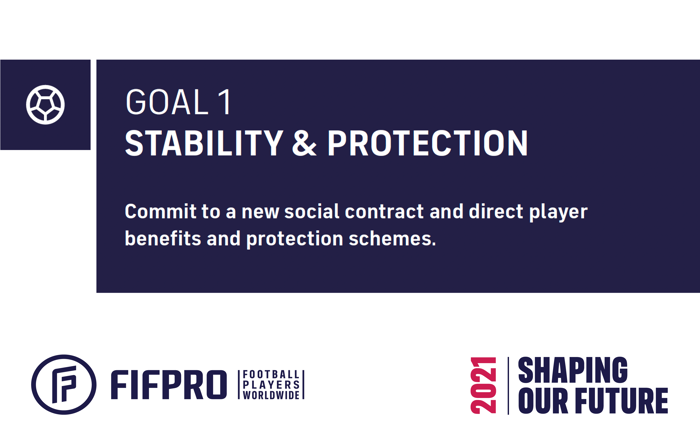
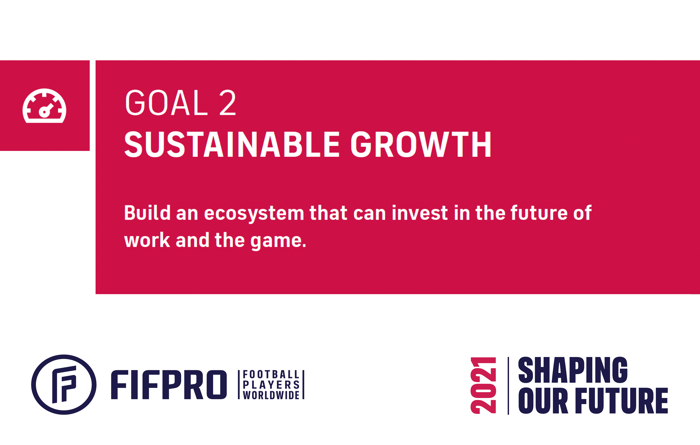
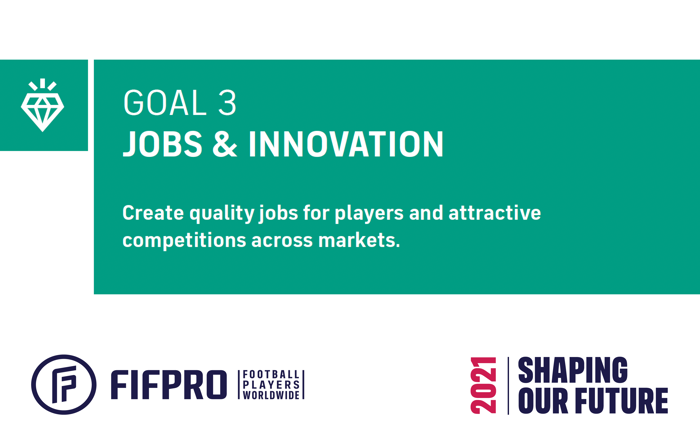
The 2021 FIFPRO Shaping our Future report outlines the rapid commercial development of the football industry, alongside the professionalisation of different football stakeholder groups and public scrutiny that have led to a gradual modification of its governance model. The next decade holds significant implications for the governance of the football industry. Inclusive and collective governance frameworks are critical to establish a common license to operate and shape the future of the game. A commitment to collective governance and regulatory standards is needed to drive the innovation and interventions required to start shaping the game’s future for the next decade.
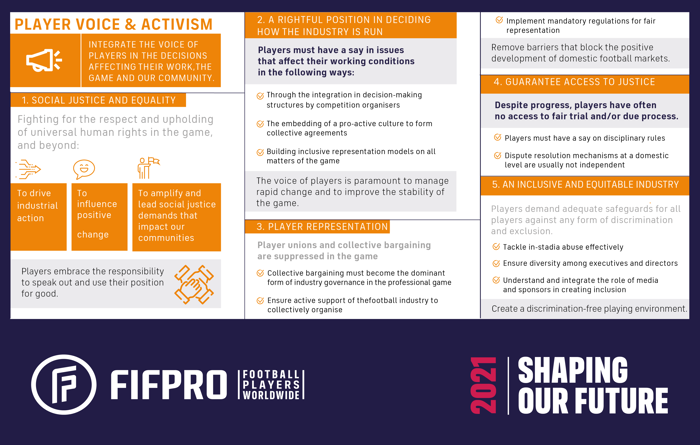
1 Social justice and equality
Social justice demands and the fight for equality are not limited to a single country or region but manifest themselves globally across a variety of contexts and they touch the football industry in overt and discrete ways. We have seen that the appetite for change in the sport is largely led by the athletes. These leading figures feel and embrace the responsibility to speak out and use their position for positive influence and change.
Many players are also embracing more of an activist role to help shift the sporting and cultural landscapes to address racial injustice, human rights, and other social movements. Based on their contribution and the vital role they play, the players, together with their elected representatives, have a rightful position in co-deciding how the game and industry of football are being run.
“PLAYERS HAVE A RIGHTFUL POSITION IN CO-DECIDING HOW THE GAME AND INDUSTRY OF FOOTBALL ARE BEING RUN”
2 A rightful position in deciding how the industry is run
The representation, inclusion, and coordination amongst and between all football stakeholders varies between
regions and confederations. While improvement has been made, there is still a considerable gap both at a domestic and international level when it comes to meaningful co-decision making processes in the football industry. It’s clear that the requirements for good governance and meaningful stakeholder representation have changed the complexity of professional football fundamentally.
In the past, player activism was focused on players’ working conditions and industrial action. This will always remain a priority. But the development of the football industry around the world and the resources that the industry has created gives a greater mandate for football players to do more, at a time where societal issues are dominating public discourse.
3 Player representation
The players, together with their elected representatives, have a rightful position in deciding how the game, and the industry itself, are being run. The solutions may be shaped by cultural and historic preferences, but through their collective representation, players have a fundamental right to meaningful representation in the decision-making process particularly when it comes to matters that affect their working and employment conditions.
The football industry must address its insufficient collective bargaining structures across domestic and international competitions. In many countries, there is no formal or structured collective process for negotiations between players and their clubs or national organising bodies. Even more so, many players are directly affected by undemocratic governance structures that undermine international labour rights. The football industry must therefore embed a pro-active collective bargaining culture in the industry.
“MANY PLAYERS ARE DIRECTLY AFFECTED BY UNDEMOCRATIC GOVERNANCE STRUCTURES THAT UNDERMINE INTERNATIONAL LABOUR RIGHTS”
4 Guarantee access to justice
Current shortcomings in governance in several markets leads to the systematic oppression of the players’ right to collectively organise, ignores existing regulatory requirements for fair trial and due process and, above all, denies the right to meaningful representation in the decision-making structures of the game. In order to further the game’s stability amidst its rapid developments, the only fair and right way forward is to allow players to have a say on disciplinary rules and to ensure that dispute resolution mechanisms are fully independent.
5 An inclusive and equitable industry
Players demand adequate safeguards for all players against any form of discrimination and exclusion. They have the right to work in a discrimination-free environment and all industry stakeholders, including media and sponsors, have a duty to tackle abuse effectively. Understanding and integrating their role will positively affect the creation of a more inclusive playing environment. Also, pro-actively ensuring diversity among executives and directors at the highest level of decision-making, will speed up this due process even more.
Shaping our Future: goals 1 to 3
Missed out on the first three goals? Don’t worry, we’ve got you covered:
